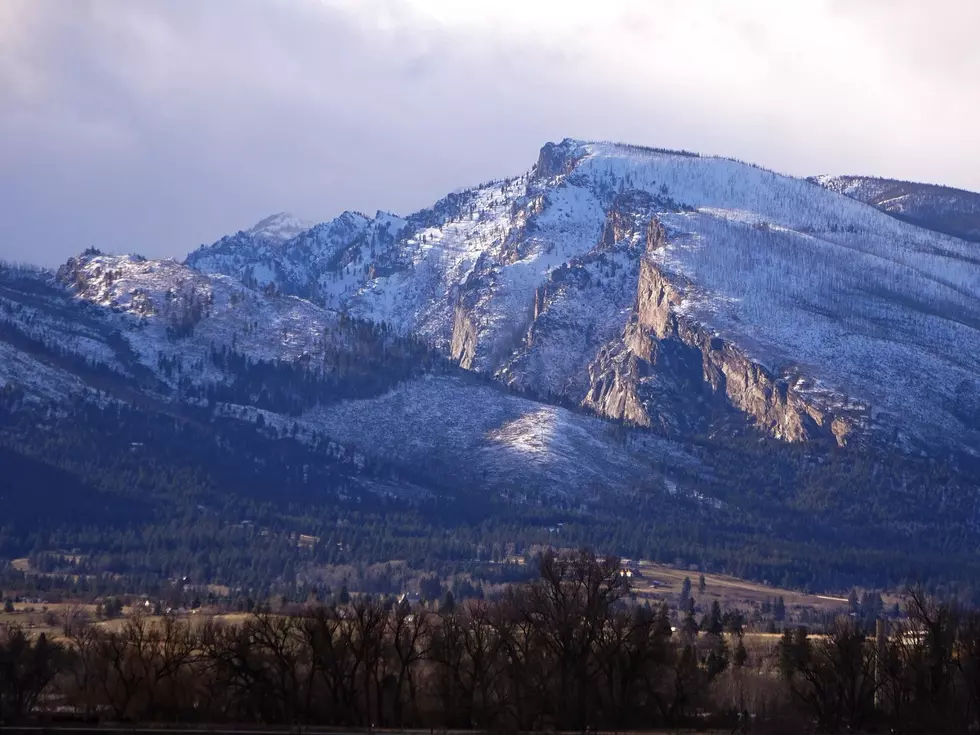
Montana Power Outage Prep; Keeping it Going When the Lights Go Out
There's no worse time for a power outage than on Thanksgiving Day. And in the Pacific Northwest, we seem to have a real knack for knocking out the electricity right when the turkey has about two hours left.
Many times when I would be on the radio, or television, telling people, "sorry, you're going to have to throw that food away" after an outage would extend over several hours.
There's not much you can do about the outage itself. But getting prepped for when the power goes out is a good time any time of the year. Not just at Thanksgiving.
Having survived a LOT of power outages, some lasting for up to a week here are some tips.

1). Keep all batteries charged at all times
This one is harder than it seems. But lithium batteries are truly amazing, often lasting months at a time. But check and recharge them regularly. Especially USB "sticks" which can be used for phones or all kinds of devices. And obviously, phones, laptops, and other critical devices should be kept charged up in stormy weather.
2). Maintain a stock of regular disposable batteries.
Again, test regularly. Keep all batteries stored in a warm place, like indoors. Cold kills batteries. So don't depend on the ones from your truck.
3). If you must go to candles, be very careful.
I've covered far too many fires that were started by candles placed too close to flammables or left unattended. Consider camping lanterns as a better alternative for lighting a larger area.
4). Locate warm clothing and sleeping bags where you find them
This is critical even when the power stays on, and the furnace quits. A couple of years ago, our furnace stopped and with careful management, we were able to keep the house around 50-to-55 degrees. Not comfortable, but it was fine because we had the outdoor gear ready.
5). Keep your car full of gas
Setting aside the electric vehicle question (sure that new Ford truck can power your house for three days, but then how do you charge the truck?). But most people don't think about a power outage knocking out the pumps for days on end. Keep it topped off, especially if stormy weather is approaching.
6). Have a plan for food
When that massive storm came ripped through Missoula in the summer of '16 and snapped off power poles like match sticks, everyone living in Miller Creek was scrambling to save their food. The power didn't come on for 4 or 5 days and it was hard to buy ice. Efficient coolers can help save hundreds of dollars of frozen foods. Missoula Electric Coop notes food can keep for at least 24 hours if you keep refrigerators and freezers closed as much as possible.
7). Food options
That fancy "bespoke" freezer and refrigerator may look good, but it shouldn't be your only source of food in the house. It's best to have easily prepared foods that either require no heating or can be cooked "camping style". And don't expect to just run to the store for that stuff when a blackout hits. Everyone else will beat you to it.
8). Generators; good idea but...
Often your best option is firing up a generator, or for us in Montana, switching over to the RV. That can help at least keep some of the basics going. But DO NOT try to power your house that way without a transfer switch. That creates a very dangerous "back feed" that could kill you, or a utility worker. It is often illegal.
9). If you need medical services, let your utility know
Missoula Electric Coop advises customers who have someone in the home on oxygen, or other powered medical equipment to let them know before there's an outage. That way the information is kept with your account and can be considered as crews are restoring power. Ravalli Electric Coop only has similar advice.
10). Have gallons of water on hand
Finally, this is the one that creates the biggest problem for a family if you take your water from a well. When the power goes off, so does your pump. That not only means no showers and no water for dishes and food prep but nothing for the most important appliance in the house, the toilet. Having water to flush can quickly get to be the biggest challenge in a multi-day outage. Keeping water, preferably in 5-gallon containers where they won't freeze, can be a lifesaver. Also, find a nearby local source for refills.
As I said earlier, these are all the tips I've run into coping with multiple, long power outages over the years. This is all common sense stuff, but points we rarely think of until the power vanishes.
25 Mind-Blowing Photos of Devastating Flooding in Montana
More From Montana Talks








